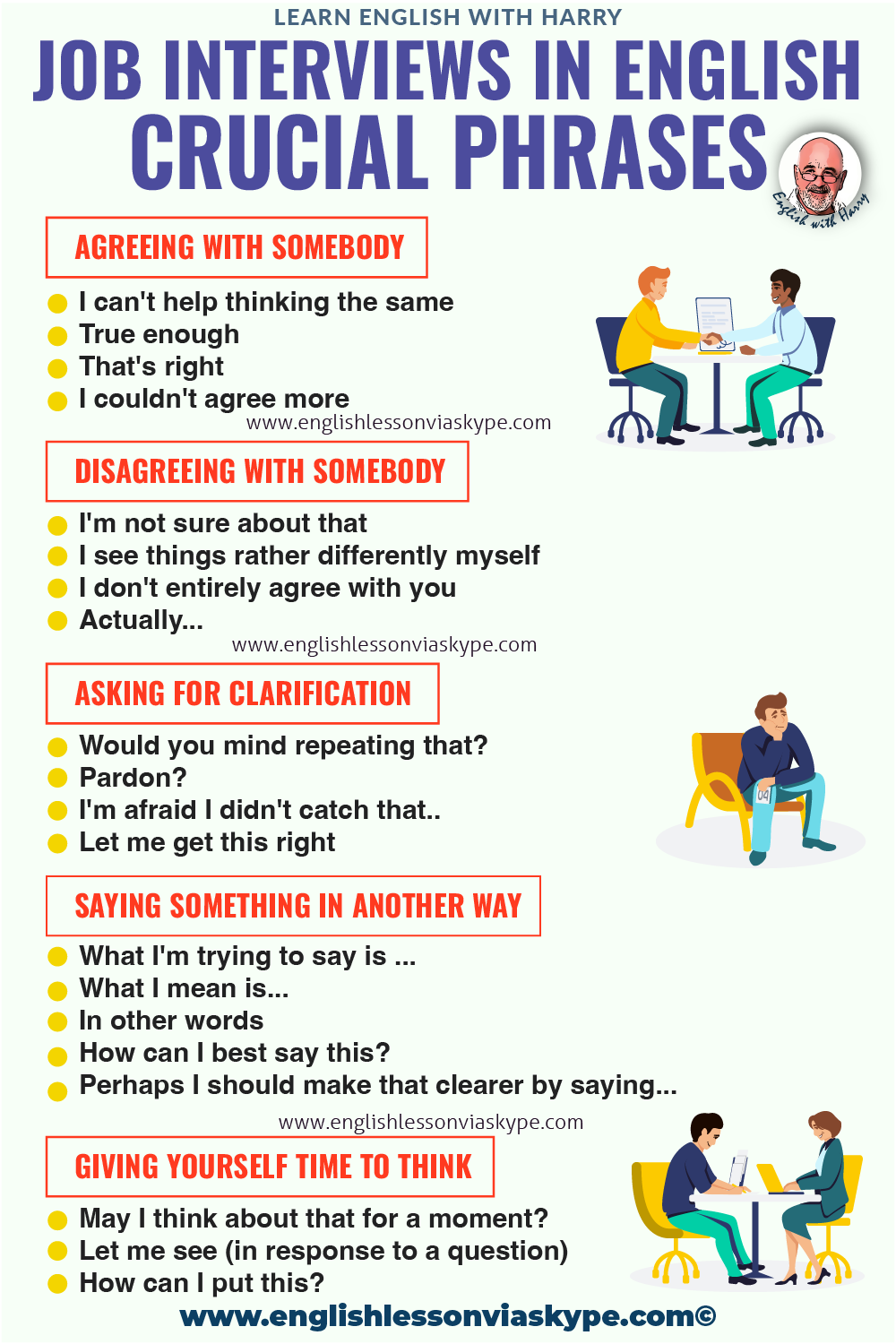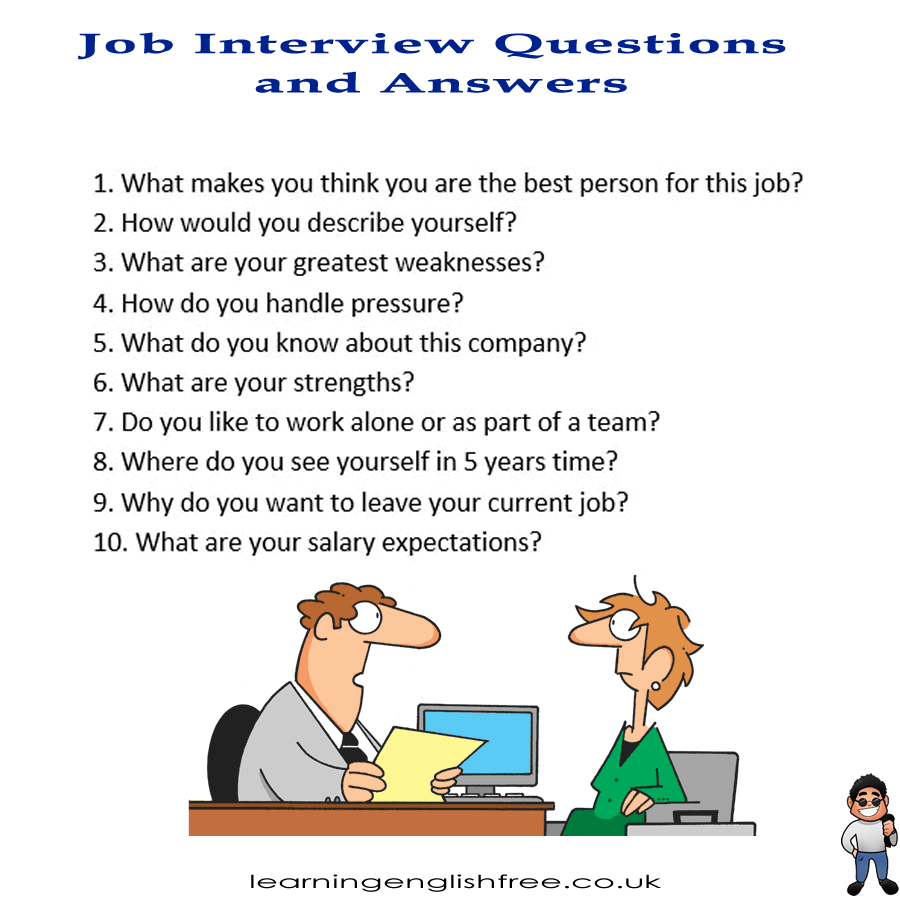Mastering English for Job Interviews: Your Ultimate Guide to Success
Introduction: Why English for Job Interviews is Crucial
In today’s competitive job market, English for job interviews is a critical skill. As the global language of business, English proficiency not only helps you communicate effectively but also demonstrates your professionalism and readiness for the role. Whether you’re interviewing for a position in an international company or one that requires dealing with English-speaking clients, being prepared to speak confidently and clearly can make a significant difference.
In this article, we’ll explore essential English interview phrases, tips for acing your interview, and strategies to improve your job interview performance.

1. Key English Phrases for Job Interviews
1.1 Introduction and Small Talk
The beginning of a job interview often involves some small talk or brief introductions. It’s important to handle this well as it sets the tone for the rest of the interview. Here are some phrases to help you kick off confidently:
-
“Thank you for having me today. I’m excited to be here.”
-
“I’ve been looking forward to discussing this opportunity.”
-
“It’s a pleasure to meet you. I’ve heard great things about your company.”
These phrases show you’re polite, enthusiastic, and ready for the conversation.
1.2 Describing Your Experience and Skills
When discussing your experience, it’s essential to speak clearly and focus on key achievements. Use specific phrases to highlight your skills and qualifications:
-
“I have over five years of experience in [industry].”
-
“In my previous role, I was responsible for [task].”
-
“I’m proficient in [software/skills] which I believe will be valuable in this role.”
This helps interviewers quickly grasp what you bring to the table.
1.3 Answering Common Interview Questions
Interviewers often ask the same core questions. It’s important to prepare answers that are clear and concise. Here are some common interview questions and how you might answer them:
-
Tell me about yourself.
“I have a background in [industry], with a focus on [specific skill]. In my previous job, I [achievement], and I’m now looking for a role where I can continue growing my skills in [specific area].” -
Why do you want to work here?
“I admire your company’s commitment to [specific value or achievement]. I believe my skills in [relevant skills] would allow me to contribute effectively to your team.”
1.4 Asking Questions
At the end of most interviews, you’ll have the chance to ask questions. Having insightful questions prepared shows your interest in the position and the company. Here are a few examples:
-
“Can you tell me more about the team I’ll be working with?”
-
“What are the biggest challenges the company is facing right now?”
-
“How does this position fit into the company’s long-term goals?”
Asking thoughtful questions makes you appear proactive and well-prepared.

2. Tips for Acing Your Job Interview in English
2.1 Practice, Practice, Practice
One of the best ways to prepare for an interview is by practicing your answers in English. Whether you do this with a friend, coach, or in front of a mirror, the more you practice, the more natural and confident you’ll feel. Practice answering questions aloud, focusing on your pronunciation and clarity.
2.2 Be Clear and Concise
Interviewers appreciate candidates who can communicate clearly and succinctly. Avoid rambling or giving overly detailed answers. Stick to the point and try to keep your answers under two minutes. This helps keep the interview focused and professional.
2.3 Use Positive Language
Throughout the interview, use positive language to emphasize your strengths. Instead of saying, “I’m not very good at time management,” try, “I have developed strong time management skills by prioritizing tasks and meeting deadlines consistently.” Positive language projects confidence and shows you’re solution-oriented.
2.4 Focus on the Job Description
Before the interview, take time to thoroughly review the job description. Understanding the specific skills and responsibilities will allow you to tailor your answers to the company’s needs. Use the interview to showcase how your skills align with the position.
2.5 Stay Calm and Confident
Job interviews can be nerve-wracking, but remember to stay calm. Confidence is key in every interview. Take a deep breath before answering each question, and don’t be afraid to take a moment to gather your thoughts if needed.
3. Common Mistakes to Avoid in Job Interviews
3.1 Speaking Too Much or Too Little
While you should aim to be clear and concise, it’s important to avoid being too brief or over-explaining. Provide enough detail to convey your qualifications, but avoid long-winded responses. Striking the right balance is crucial.
3.2 Using Informal Language
Unless you’re in an interview with a very casual startup company, using informal language can make you seem unprofessional. Avoid using slang or overly casual expressions, and stick to business English.
3.3 Forgetting to Ask Questions
Failing to ask questions can give the impression that you’re not really interested in the job or company. Always prepare a few thoughtful questions to ask at the end of your interview. This shows that you’re engaged and that you’ve done your research.

4. How to Improve Your English for Job Interviews
4.1 Take English Language Courses
If you feel your English isn’t quite where it should be, consider enrolling in an English language course focused on job interview preparation. These courses typically cover essential interview vocabulary, question-response strategies, and real-world practice.
4.2 Record Yourself Speaking
Recording yourself can help you hear how you sound during an interview. It allows you to identify areas where you might need to improve, such as speaking too fast or using fillers like “um” or “uh.” Listening to the recordings will help you refine your speaking skills.
4.3 Learn Job-Specific Vocabulary
Certain jobs require specific vocabulary. If you’re interviewing for a role in finance, for example, familiarize yourself with financial terminology. For a marketing job, you might want to practice terms related to campaigns, strategies, and ROI.
4.4 Watch Interview Videos
There are plenty of YouTube videos and online resources where you can watch mock job interviews. Watching these videos allows you to pick up on body language, interview etiquette, and the flow of the conversation, helping you prepare for your own interview.
4.5 Join English Conversation Groups
Engaging in conversation with native speakers or other learners can improve your fluency. Join English conversation groups online or in person to practice speaking in informal settings. This will help you become more comfortable with spontaneous communication.
5. Frequently Asked Questions (FAQs)
Q1: How can I improve my English fluency before a job interview?
A1: To improve your fluency before a job interview, focus on practicing common interview questions and answers, reading English materials related to your job field, and engaging in conversation with others. The more you practice, the more comfortable and confident you’ll become.
Q2: What should I wear to a job interview?
A2: Dress professionally according to the job and company culture. For most interviews, a business suit or professional attire is appropriate. If you’re unsure, it’s always better to err on the side of formal.
Q3: How can I prepare for unexpected interview questions?
A3: While you can’t predict every question, practicing how to handle unexpected questions is essential. Focus on staying calm and answering honestly. If you’re unsure about a question, it’s okay to pause and think before responding.
Q4: Can I use notes during a job interview?
A4: It’s okay to bring a notebook with some key points or questions you want to ask, but avoid reading directly from it during the interview. You want to come across as confident and engaged, not overly dependent on notes.
6. Conclusion: Ace Your Job Interview in English
Mastering English for job interviews is a vital step toward landing your dream job. By practicing key phrases, preparing thoughtful responses, and continuously improving your language skills, you can make a lasting impression on your potential employers. Stay calm, stay confident, and remember that every interview is an opportunity to showcase your talents and skills.
With these tips in mind, you’ll be well on your way to interview success!








